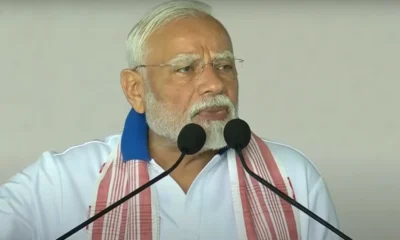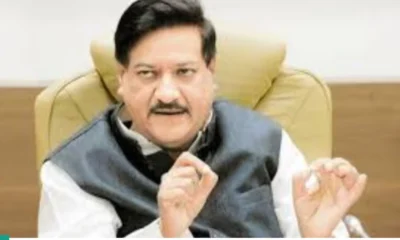At a time when farmers’ distress and their agitation are at a new high and beginning to affect fortunes of political parties, it seems the Narendra Modi government has decided it would perhaps be safer to conceal facts and possibly get a benefit of doubt than reveal them and be damned.
This is not limited to farmers or agricultural sector only, but that provides the peg today.
Media reports today, (Thursday, Dec 20) said that the government told the Parliament it has no data on farmer suicides in the last three years. Union Agriculture Minister Radhamohan Singh told the Lok Sabha that the National Crime Records Bureau (NCRB), which collects such data, has not published figures of farmer suicides since 2016.
He was responding to a question by Trinamool Congress leader Dinesh Trivedi, who had sought details about the number of farmers who had committed suicide since 2016 and whether the government planned to rehabilitate their families.
“The NCRB under the Ministry of Home Affairs compiles and disseminates information on suicides… These reports on suicides are available up to 2015 on its website. The reports for the year 2016 onwards have not been published yet,” the minister said in a written reply that detailed other steps taken by the government in a country where 70 percent of the population relies on agriculture.
In 2015, the report reveals, over 8,000 farmers committed suicide. Maharashtra had the highest number (3,030), followed by Telangana (1,358) and Karnataka (1,197). Over 4,500 agricultural labourers committed suicide. That year, the report began publishing reasons for farm suicides. Most suicides were because of debts and bankruptcy.
Since then, reported News18, there have been several agitations by farmers. As farm distress increased, five farmers were killed in police firing during a protest in Madhya Pradesh’s Mandsaur last year. But the data on suicides became unavailable, as pointed out also by journalist P Sainath, who participated in a farmers’ march and protest in Delhi last month.
In 2014, the crime records bureau reported 5,650 farmer suicides. That year, the bureau started separating data for farmers and agricultural labourers.
That was about farmers.
The year 2016 seems to be the ‘watershed year’ for Modi government. That was also the year when Prime Minister Narendra Modi got the ‘brainwave’ of demonetisation.
There is no government data on employment either – also from 2016. In March this year, Minister of State for Labour and Employment (independent charge) Santosh Kumar Gangwar told the Parliament that the Indian government has not conducted any nationwide survey to find out the actual data of employment in the country since 2016. In other words, the government does not have any clue about the employment/unemployment situation in the country since 2016.
The government not only finds it better not to keep data on key sectors, it also denies information on many. Let’s take the Prime Minister’s Office (PMO) itself.
For all its claims of going after the rich and working tirelessly for the poor, the PMO refused to give information on NPAs. It rejected a RTI plea seeking to know details of bad loans submitted by then RBI Governor Raghuram Rajan, which finds mention in his response to Parliament’s Committee on Estimates.
Modi government and BJP never tire of boasting about going after the corrupt. But Modi would not like to share specifics.
In its response to a Central Information Commission (CIC) order asking for details of black money brought back from abroad within 15 days, the PMO refused to share the details.
The PMO has refused to share details of alleged corruption complaints received against Union ministers, saying providing such information “may be a subjective as well as a cumbersome exercise”
Earlier, the PMO declined to share action taken on a letter written by Congress leader Ajay Singh to PM Modi, which alleged large-scale corruption through e-tendering in Madhya Pradesh.
A report said that a whopping 2,227 RTIs rejected by the PMO in 2015-16 were in the “others” category — which does not find mention in law — said the Central Information Commission (CIC) report released in March 2017. Rejections under this head seems to have reached a new high in 2015-16, as per the data in the annual report of the CIC.
Also in 2017, PMO refused to reply to RTI on Modi, Manmohan’s foreign trips, calling it ‘vague’. The PMO said the RTI query seeking information on expenses incurred in foreign trips by Narendra Modi and Manmohan Singh was “too vague and wide”.


 India News21 hours ago
India News21 hours ago
 India News17 hours ago
India News17 hours ago
 India News2 hours ago
India News2 hours ago
 India News2 hours ago
India News2 hours ago
 Latest world news1 hour ago
Latest world news1 hour ago















